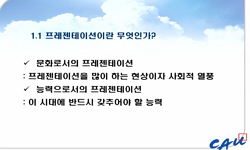이 논문의 목적은 흄과 맹자, 칸트의 철학에서 도덕성의 근거를 밝히는 것이다. 흄은 이성과 감정의 역할을 구분한다. 이성의 활동은 인식과 관련되는 반면에, 도덕 행위에 관해서는 무력하...
http://chineseinput.net/에서 pinyin(병음)방식으로 중국어를 변환할 수 있습니다.
변환된 중국어를 복사하여 사용하시면 됩니다.
- 中文 을 입력하시려면 zhongwen을 입력하시고 space를누르시면됩니다.
- 北京 을 입력하시려면 beijing을 입력하시고 space를 누르시면 됩니다.
https://www.riss.kr/link?id=A109090745
- 저자
- 발행기관
- 학술지명
- 권호사항
-
발행연도
2024
-
작성언어
Korean
-
주제어
자유 ; 도덕법칙 ; 도덕감 ; 공감 ; 본성 ; 사단 ; freedom ; moral law ; moral sense ; sympathy ; human nature (性) ; four-beginnings (四端)
-
KDC
10
-
등재정보
KCI등재
-
자료형태
학술저널
- 발행기관 URL
-
수록면
121-154(34쪽)
- 제공처
- 소장기관
-
0
상세조회 -
0
다운로드
부가정보
국문 초록 (Abstract)
이 논문의 목적은 흄과 맹자, 칸트의 철학에서 도덕성의 근거를 밝히는 것이다. 흄은 이성과 감정의 역할을 구분한다. 이성의 활동은 인식과 관련되는 반면에, 도덕 행위에 관해서는 무력하다고 주장한다. 행위는 의지, 감정, 욕망 등의 작용에 의해서 유발되는 것이기 때문에, 이성은 행위를 유발시킬 수 없다고 말한다. 즉 흄은 도덕성의 근원을 이성이 아니라, 의지, 감정, 욕망이라고 한다. 도덕적 행위는 실천의 문제이기 때문에, 추상적 관념들의 관계, 그리고 사실의 문제를 다루는 이성은 도덕적 행위와 무관하다고 주장한다. 이에 반해서, 칸트는 도덕의 문제는 감정과 욕망의 문제가 아니라, 이성의 문제라고 주장한다. 칸트는 도덕을 실천 이성과 의지의 문제로 간주한다. 칸트는 도덕을 감정, 욕망의 문제가 아니라고 주장한다. 도덕성은 이론 이성의 인식 능력의 문제와는 구분되는 실천이성의 욕망 능력의 문제라고 한다. 도덕성은 자유의 문제이며, 자유는 자연계의 인과성을 넘어서는 도덕 법칙의 토대가 된다. 맹자는 구체적인 상황에서 측은지심의 도덕성이 드러나게 된다고 주장한다. 그러나 측은지심의 감정은 도덕성의 근거가 아니라 도덕성의 실마리이다. 도덕성은 인간 본성인 인의예지의 사덕에 근거한다. 사덕은 선천적으로 인간에게 주어진 성품이다. 맹자는 밖으로 드러난 도덕 감정을 단순한 경험적 감정이 아니라, 선한 본성에 근거한 도덕 감정이라고 주장한다. 맹자의 측은지심은 구체적 경험을 통해서 밖으로 드러나지만, 도덕심은 선천적 본성에서 유래하는 것이다. 이런 점에서 맹자의 도덕 감정은 흄의 도덕 감정과 구별된다. 도덕 감정에 근거한 맹자의 도덕성은 경험적 감정을 부정하는 칸트의 도덕성과도 구별된다. 칸트는 사물의 촉발로부터 생겨나는 감정, 욕망, 동정심, 경향성 등은 도덕성의 근거가 될 수 없다고 한다. 다만 칸트는 도덕법칙에 대한 존경의 감정만을 선천적 감정으로, 도덕 행위의 동기로 인정한다. 이처럼 맹자는 선천성과 경험성을 조화하는 도덕론을 제시한다. 인간은 매순간 사물과 접촉하면서 욕망을 일으킨다. 칸트와 맹자는 선천적 본성 또는 이성에 따른 행위를 강조한다. 이런 행위만이 도덕적 행위라고 주장한다. 인간은 선천적 본성의 세계와 경험적 현실 세계를 동시에 살아가는 이중성을 지닌 존재이다. 현실과 이상의 이중성을 지닌 존재이기 때문에 매 순간 갈등 속에서 살아간다. 이러한 이중성이 인간을 성장시킨다. 경험적 현실 속에서 이상적 세계를 향하여 나아가는 과정이 바로 인간 도덕성의 숭고함이다.
다국어 초록 (Multilingual Abstract)
The purpose of this paper is to clarify the grounds of morality in the philosophy of Hume, Mencius, and Kant. Hume distinguishes between the roles of reason and emotion. Because the roles of reason are related to cognition or concept, they are powerle...
The purpose of this paper is to clarify the grounds of morality in the philosophy of Hume, Mencius, and Kant. Hume distinguishes between the roles of reason and emotion. Because the roles of reason are related to cognition or concept, they are powerless for moral actions. It is said that reason cannot cause moral actions because moral actions are caused by human emotions, wills, and desires. In other words, Hume says that the ground of morality is not reason, but emotion, will and desire. Since moral actions are the matters of practice, theoretical reason deals with the matters of abstract ideas or facts. In contrast, Kant argues that morality is not a matter of emotion and desire, but of reason. Kant regards morality as a matter of practical reason and good will. Morality is said to be the problem of the ability of desire of practical reason, which is distinct from the cognitive ability of theoretical reason. Morality is a matter of freedom, and freedom is the ground of moral laws that go beyond the causality of the natural world. Mencius argues that the morality of pity or sympathy is revealed in specific situations. However, the emotion of pity or sympathy is not the ground of morality, but a clue to morality. Morality is based on the four virtues which are human nature. Four virtues is an a priori characteristic given to human beings. Mencius argues that the moral feelings revealed outside are not just empirical emotions, but moral feelings based on good nature. The pity or sympathy in Mencius philosophy is revealed outside through concrete experiences, but the morality is derived from innate nature. In this respect, Mencius moral feelings are distinguished from Humes moral feelings. Mencius morality based on moral emotions is also distinguished from Kants morality, which denies the morality derived from empirical moral emotions. Kant argues that emotions, desires, sympathies, and tendencies affected by things at every moment cannot be the grounds for morality. However, Kant regards only feeling of respect for the moral law as an innate emotion and recognizes it as a motive for moral actions. In this way, Mencius presents the moral theory that harmonizes apriority and experience. Human beings arouse desires by contacting objects at every moment. Kant and Mencius emphasize actions based on innate nature or reason. It is argued that only these actions are moral actions. The lives of human beings are existences living in the world of innate nature and the empirical reality at the same time. Therefore, human beings are existences of duality. They live in conflict because they experience existences with the duality of reality and ideal. Duality is the basis for growing personality. The process of moving toward an ideal world is the sublime of human morality.
목차 (Table of Contents)
- 논문개요
- Ⅰ. 머리말
- Ⅱ. 흄의 도덕 감정론
- Ⅲ. 칸트의 자유와 도덕법칙
- Ⅳ. 맹자의 四端과 도덕성의 근거
- 논문개요
- Ⅰ. 머리말
- Ⅱ. 흄의 도덕 감정론
- Ⅲ. 칸트의 자유와 도덕법칙
- Ⅳ. 맹자의 四端과 도덕성의 근거
- Ⅴ. 흄, 칸트, 맹자의 도덕성에 대한 상호 비판
- Ⅵ. 결론
- 참고문헌
- Abstract
동일학술지(권/호) 다른 논문
-
문명 격변의 시대, 안중근의 동아시아 평화 찾기와 문명사적 의미
- 대한철학회
- 김정현(Kim, Jyung-hyun)
- 2024
- KCI등재
-
확률적 예측과 후측의 차이로 과거와 미래를 구분하려는 시도 - 라이헨바흐의 “세계의 인과적 구조와 과거와 미래 사이의 차이”(1925년) 검토 -
- 대한철학회
- 강형구(Kang, Hyeong-gu)
- 2024
- KCI등재
-
- 대한철학회
- 김시형(Kim, Shi-hyong)
- 2024
- KCI등재
-
현상학과 역사의 만남에서 방법의 문제 - 후설 「기하학의 기원」에 관한 데리다의 분석을 중심으로 -
- 대한철학회
- 김정현(Kim, Jung-hyun)
- 2024
- KCI등재





 DBpia
DBpia







